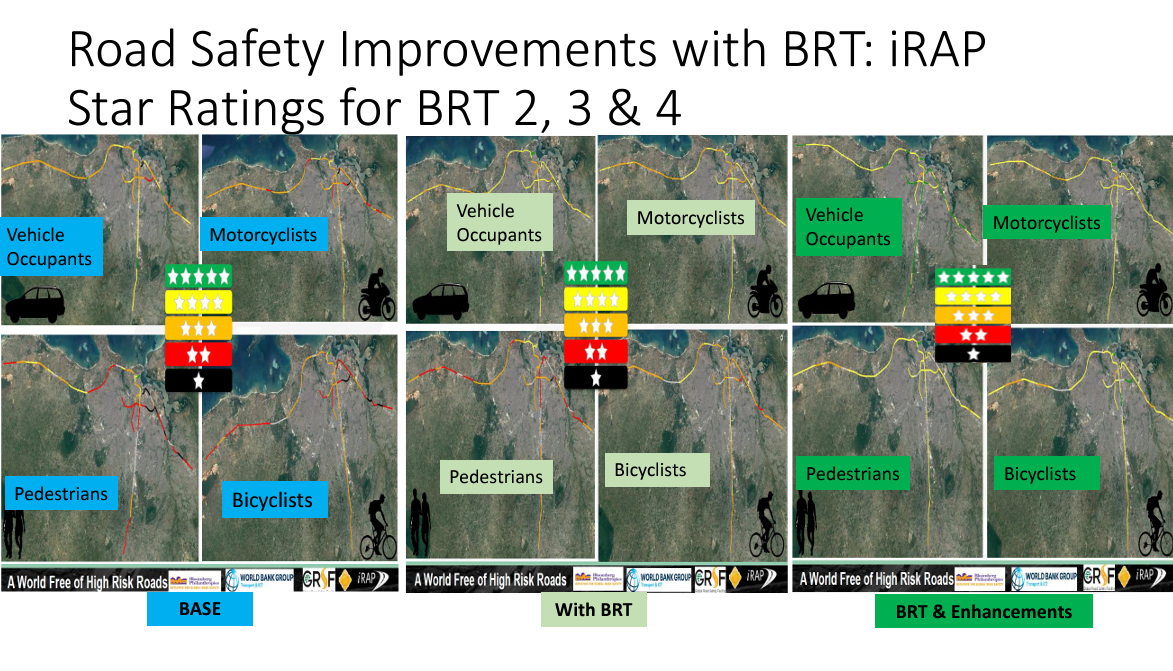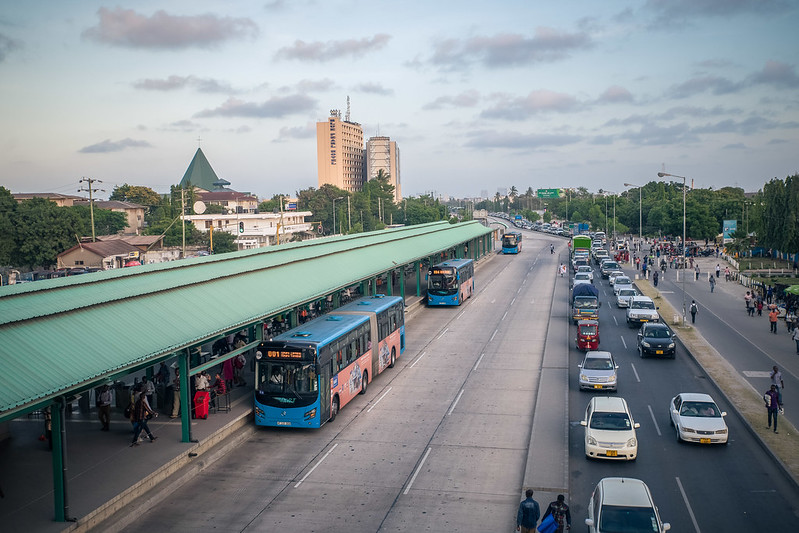Tanzania’s Bus Rapid Transit (BRT) corridors in Dar es Salaam are slashing travel times and improving safety for commuters, thanks to construction by the Tanzanian Government with the World Bank, development partners and investors.
Phase 1 opened in 2016 with 29 buses and five terminals. The impact was immediate, cutting a 20km three-hour journey to 45 minutes, reducing car usage and emissions, and most importantly, providing affordable, inclusive and safe travel for the city’s more than 8 million residents.
Phase 2 of the BRT is also complete, and Phases 3, 4 and 5 are under construction.
The World Bank engaged iRAP in 2018 under the Bloomberg Initiative for Global Road Safety (BIGRS), to undertake Star Rating assessments of the existing roads prior to BRT construction (baseline) and the designs for BRT Phases 2, 3 and 4, to inform and improve their safety.
The assessment showed that the existing road was rated 2-stars or worse for 92% of pedestrians and 66% of bicyclists which aligns with the recorded crash data showing pedestrian fatalities represent almost 60% of all road user fatalities.
Recommendations for improvement of the BRT design were proposed, and Safer Roads Investment Plans were provided to further enhance safety with prioritised and cost-effective countermeasures likely to prevent fatalities and serious injuries over the 20-year life of the infrastructure.
The proposed network phases 2, 3 and 4 are likely to reduce risk for all road users, particularly for bicyclists and pedestrians with significant increases in the proportion of network rated 3-star or better.

iRAP assessment results shared by Project Manager Mr Yonas Eliesikia Mchomvu, Senior Transport Specialist, World Bank, SSATP Annual General Meeting
The BRT construction was financed in part by a from $290 million credit from the International Development Association, the World Bank’s fund for the poorest countries.
It is projected that Dar es Salaam’s population could reach 10 million by 2027, driving it to ‘mega city’ status.
The government made a “very wise decision to invest heavily in public transport,” said World Bank Country Director for Tanzania Nathan Belele. “This investment is going to lead to approximately 900,000 people coming into work every day by public transport.”
For more information on TanRAP and the activities helping to make roads safer in Tanzania, click here.
Lead image credit: Hendri Lombardi, World Bank


















